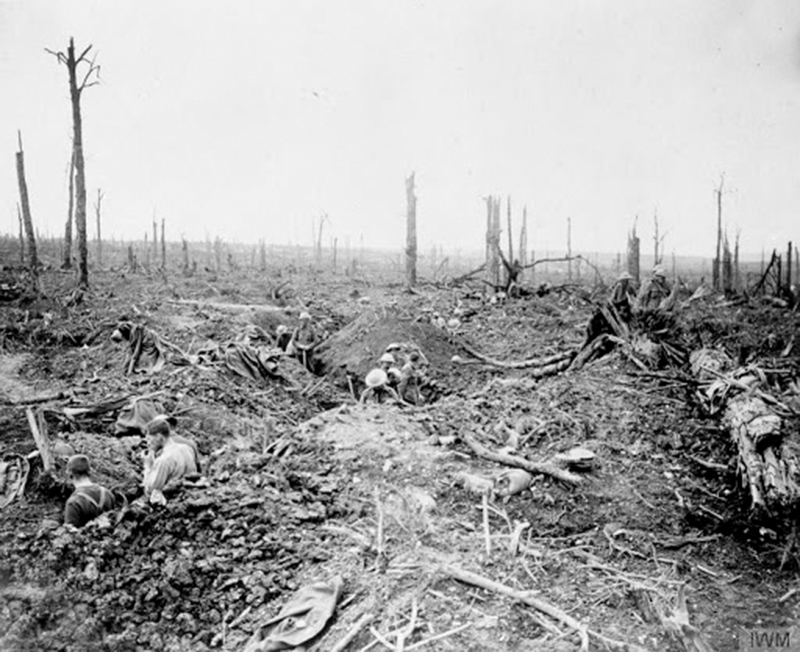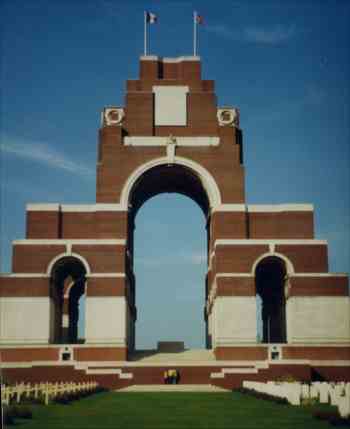Useful links: |
Woodward Family Tree by Graham Woodward |

Frank Woodward - died 18 July 1916, Battle of Somme, France |
At the outbreak of World War 1, three members of the Woodward family in Burton on Trent volunteered for army service despite being Coopers by trade, an exempt occupation. Horace was rejected on medical grounds, (he had a double hernia), his brother Bernard became an officer in the Royal Horse Guards and his brother Frank joined the 1st Btn. Gordon Highlanders (service number S/3985).
Cecil Frank Woodward was the fifth child of Arthur and Joice Woodward. He was born at Burton on Trent in 1896 or 1897 and is shown as being aged four years on the 1901 census return (31 March 1901). According to the Commonwealth War Graves Commission report, he was 19 years old when he died in 1916.
According to his brother Bernard, Frank was killed at Delville Wood near Longueval. The wood was also known as Devil's Wood, and was the site of many ferocious battles between 1 July 1916 and 27 August 1916.The picture on the left shows the shattered remains of the area after the battle. Delville Wood was on the northeast side of the village of Longueval and was behind the German lines. The plan was to capture the village, but the wood's high position was a threat to the British and South African plans. The view was that if Delville Wood was not captured then German artillery observers could overlook the village and German infantry would have an ideal place to launch attacks on Longueval. After house to house fighting, on the 14th July Longueval was captured by the British. On the morning of the 15th, British and South African troops attacked Delville Wood and part of the wood was captured. The next day the Germans counter-attacked, shelling the British occupied site. Another attack north on the 16th was repelled by the Germans, On the 17th the British and South Africans again attacked north but were driven back to their original positions. By the end of the 17th they were under attack from the Germans on all sides. On the morning of the 18th when Frank Woodward was killed, the Germans began shelling the wood with 400 shells a minute, decimating the Britsh and South African troop numbers, but a later German counter-attack was repelled. It wasn't until the 3rd September after more vicious fighting that the Germans finally abandoned the wood. |
During the battle, the Scottish Divisions and South Africans combined suffered over 7,500 casualties. At one point a report by a German Officer said that corpses were everywhere, in places piled four deep. Five Victoria Crosses were awarded for bravery at Delville Wood. German losses are thought to be at least 9,500, but their records were destroyed during World War II. The memorial is a huge structure standing 45m (140ft) high, designed by Sir Edwin Lutyens and completed in 1932. Frank's name is carved on Pier and Face 15B of the memorial and his details are contained on page 2774 of the commemorative book kept at the site. There is a visitor's centre housing a museum containing books, photographs and other items relating to the Battle of the Somme. |
|
Compiled by Graham Woodward, Nottingham, England (UK).

